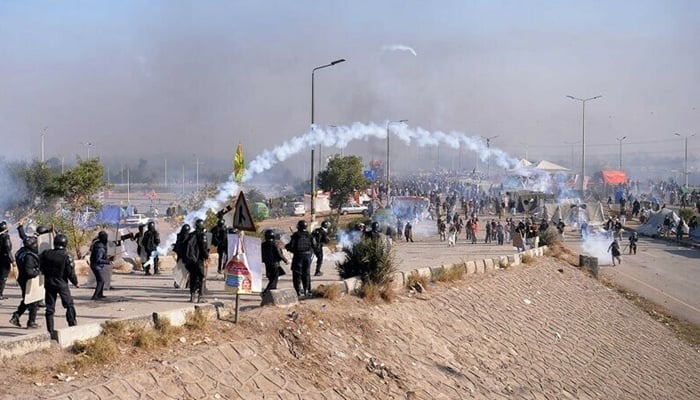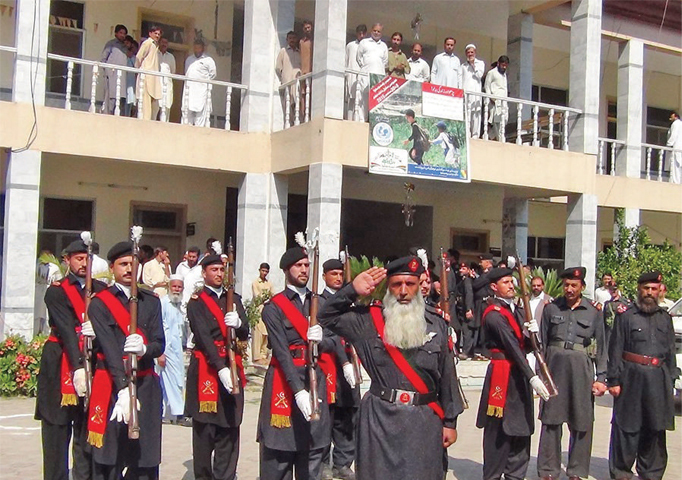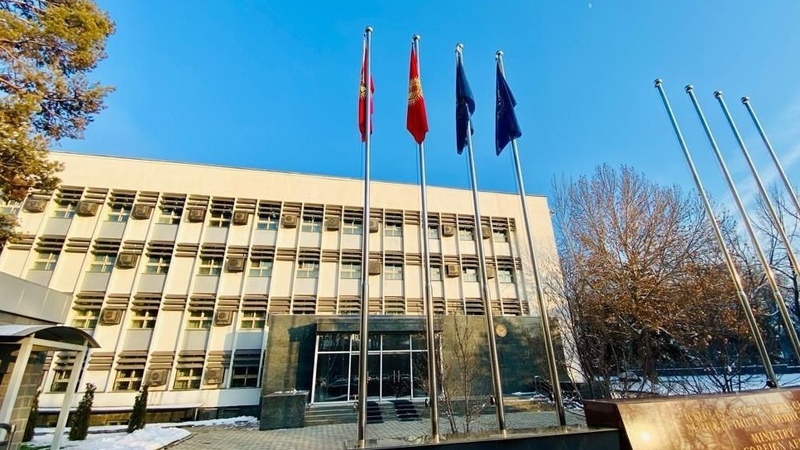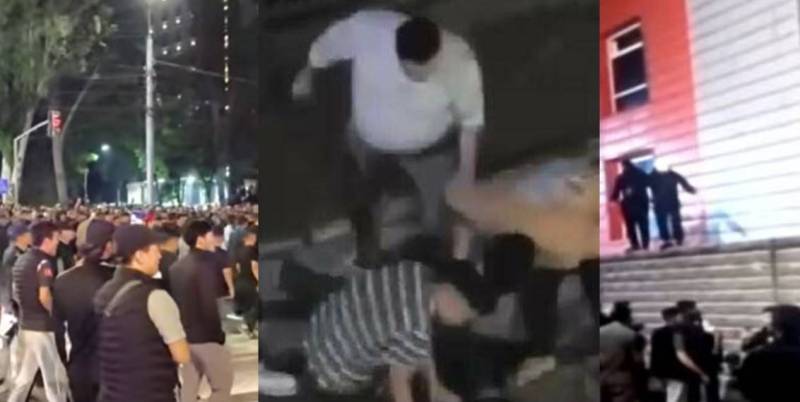- Web Desk
- 44 Minutes ago
Faizabad sit-in inquiry commission unveils findings in report
-
- Zahid Gishkori Web Desk
- Apr 16, 2024

-Former DG-ISI Faiz Hameed cleared of all charges
-Punjab Government’s failure to intervene and allowing TLP to proceed to Islamabad caused casualties
-Failure of communication within police force highlighted as contributing factor to chaos
ISLAMABAD: The Faizabad Dharna Inquiry Commission has released its findings after an extensive investigation into the events surrounding the Faizabad sit-in. Chaired by former IG Akhtar Ali Shah, the three-member commission diligently probed the motivations behind the sit-in, culminating in the compilation of a comprehensive report.
Final report on Faizabad dharna submitted to Cabinet Division
Key figures, including former prime minister Shahid Khaqan, federal minister Ahsan Iqbal, and Prime Minister (the-then Punjab Chief Minister) Shehbaz Sharif, have denied any involvement in facilitating the sit-in, echoing similar sentiments expressed by former Intelligence Bureau (IB) Chief Aftab Sultan regarding organizational or individual facilitation.
Shahid Khaqan delegated the resolution of the matter to the-then Director General Inter-Services Intelligence (DF-ISI) Faiz Hameed. DG-ISI was tasked with signing the agreement – a move sanctioned by the then Army Chief.
The report says that the Punjab government’s decision to allow the Tehreek-e-Labbaik Pakistan (TLP) march to proceed to Islamabad instead of intervening while they were still in Lahore, resulted in casualties. Communication failures within the police force have also been mentioned as the factors responsible for the casualties.
The report adds, the federal government reportedly engaged ISI to engage with protest leadership, ultimately leading to the dispersal of demonstrators after an agreement was reached with the agency’s cooperation.
Instances of social media threats against government officials during the sit-in underscored the failure to curb online propaganda, with the report placing responsibility on the government for its inaction.
The report emphasised the need for a zero-tolerance policy against violent extremism and stressed the importance of upholding constitutional principles, human rights, democracy, and the rule of law.
Khawaja Asif unravels former Army Chief’s Faizabad sit-in connection
The report also called for enhanced posting protocols for police officers and stringent measures to combat violent extremism.
The commission stressed the importance of implementing all points of the National Action Plan (NAP) and addressing weaknesses in the police’s command and control system, urging policymakers to heed the lessons learned from the Faizabad sit-in.




